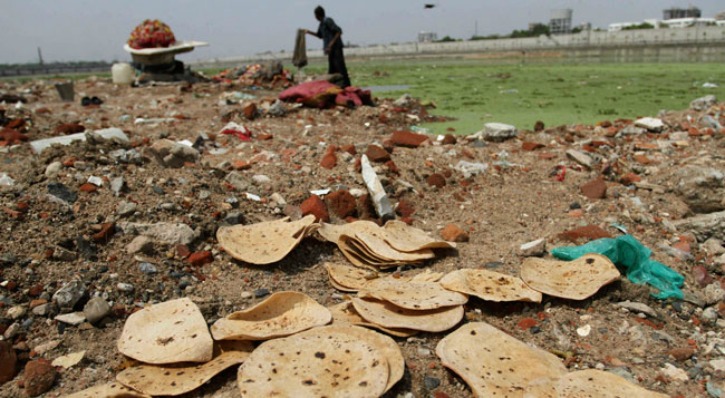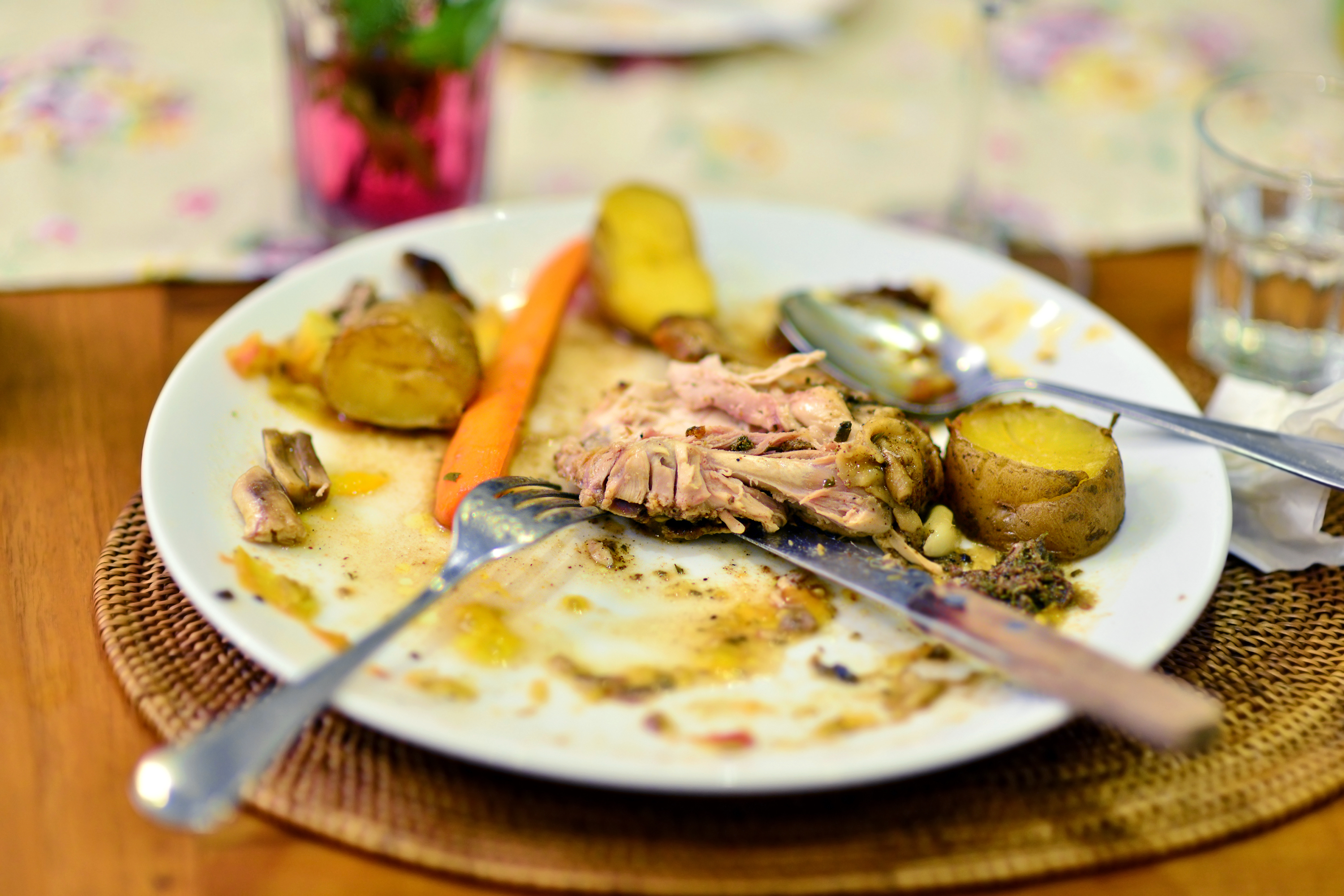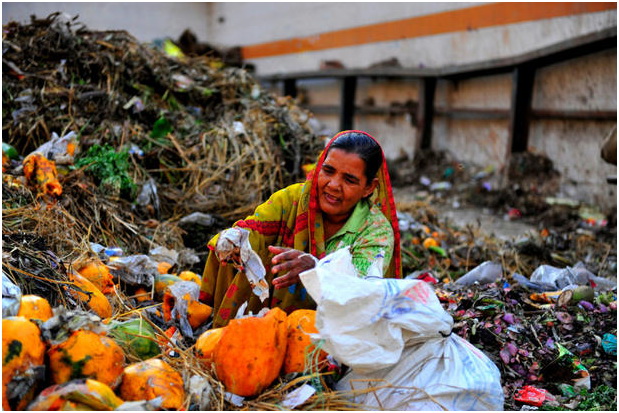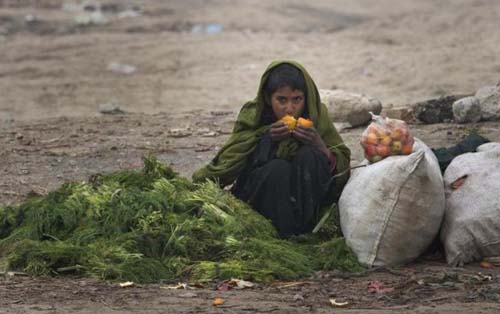Disclaimer*: The articles shared under 'Your Voice' section are sent to us by contributors and we neither confirm nor deny the authenticity of any facts stated below. Parhlo will not be liable for any false, inaccurate, inappropriate or incomplete information presented on the website. Read our disclaimer.
According to UN Food and Agriculture Organization (FAO), developing countries waste 40 percent food items, 1.3 billion tons of food is wasted annually all over the world. Almost a billion people are going hungry, out of which one-third are children.While we waste 1/3 of the food we produce. The amount of food waste produced globally each year is more than enough to feed all of the hungry people in the world.
A child dies every 5 seconds as a result of hunger. One in eight people go to sleep hungry every day. 40% of all food produced in the US is wasted. Anywhere food is grown, sold, or eaten food is wasted, however, consumers are definitely the biggest source of food waste.
Pakistan is one of the most food insecure countries in the world and is ranked 11th at EXTREME RISK on the food security risk index, 61 Million Pakistanis are food Insecure. Hundreds of people in Pakistan die each year because of malnutrition and various deficiencies. A malnourished woman is at higher risk of giving birth to an anemic or an underweight child.



Source: Brands Magazine
According to Pakistan Demographic and Health Survey 2012-13, around 45% of children show evidence of chronic malnutrition or stunting and 11% are acutely malnourished requiring urgent treatment. One in every 14 Pakistani children dies before reaching the age of one, and one in 11 do not survive to grow till their fifth birthday, states a report compiled by the office of the federal ombudsman in collaboration with the UNICEF.
Pakistan continues to suffer from as many as 2.5 million children struggling with stunted growth, and more than one million underweight children under the age of five — which is significantly more than the combined number of children in similar conditions in Afghanistan, Yemen, Somalia, Sri Lanka, Papua New Guinea, Iraq, Sudan, DR Congo and Ethiopia. This means our future generation will not only be mentally and physically stunted, but will also be unskilled and lag behind the competing world.



Source: Brands Magazine
Between 2014 and 2016, 22 percent of the Pakistani population as a whole was undernourished, the equivalent of about 41.4 million hungry people. Pakistan does not need a continuation of the Thar tragedy to acknowledge its millions of children being exposed to high risks. The statistics say it loud and clear: the country’s children are in a grave danger.
Only seven percent of the families in Thar have the ability to buy food while the remaining 93 percent don’t, Eighty per cent of the population in Thar takes loans to buy food which is not repaid for the next four to five years. There is no intervention to break this cycle.
Approximately, 40 percent food prepared at different banquets is wasted when people’s rush towards food and stock up their plates with more food than they can consume. Add to that the trend of preparing 15, 20 or even 25 dishes for a wedding and other banquets and the situation gets worse.



Source: Brands Magazine
Consequently, people love to taste everything and in that process leave most of the dishes wasted because either they do not like it or something else catches their attention if one gets a chance to visit kitchens of restaurants, then one would be shocked to see the amount of food going into the trash.
At a typical wedding in Karachi, the average food waste is equal to at least 300 individual meals. In some cases, the waste is to the extent of 20-25 percent when the number of dishes exceeds the number of guests invited to the marriage halls. As Muslims, it is simply unbecoming of us to waste food. Wasting food is a sin in Islam.
Allah Says in the Holy Quran Chapter 7 Surah Aaraaf verse 31:
“O children of Adam! Attend to your embellishments at every time of prayer, and eat and drink and be not extravagant; surely He does not love the extravagant.”
Anas said: “The prophet ordered us not to leave anything in the plate and he said: “You do not know in which portion of your food Allah has put the Barakah (Blessing)”. Muslim



Source: Times of Pakistan
Pakistan is also extremely vulnerable to climate change and will see a 50% reduction in crop yield by 2030, according to the German Watch’s Global Climate Risk Index of 2012. Each time food goes unconsumed, all the resources that went into producing processing, packing and transporting the food are wasted. This means that a huge amount of water, money and other materials are depleted. Food wastage increases methane emission and contributes significantly to climate change.
This is a serious problem we all need to stop wasting food. No one should die of hunger. The solution to our hunger problems lies within ourselves. People should make a habit of taking only that food, which they can eat at once without wasting any of it. If people do not waste food at weddings and parties, then 10 to 15 people, who provide service to the people, can eat it afterward.
Dispose of leftovers, not in the garbage can- but in such a way that they can either be reused or given to a stray cat/dog who will consume these leftovers. Take care of the hungry in what little capacity you can. While we eat three healthy meals every day and also afford to waste food which could have otherwise served another person, millions of people out there starve to death. There are 300 million hungry people in India and Pakistan; if you can’t feed them all – let’s start with one.
On the societal front, mindsets need to change where wasting food is concerned. It is simply unconscionable that we continue to waste so much when millions go hungry in this country. If one remained hungry, he has not committed a sin, but if one wastes food, then he becomes answerable to God. Let us please try our best from this day, wasting food includes throwing cake pieces at each other on parties that end up on the floor.
In many countries around the globe, poor people search for food from the waste dumps. Our extravagance and negligence end up in the dump and they feed on it. One should search for poor and needy and hand-over them food in clean bags or packs, rather than them searching for it amongst waste.

















